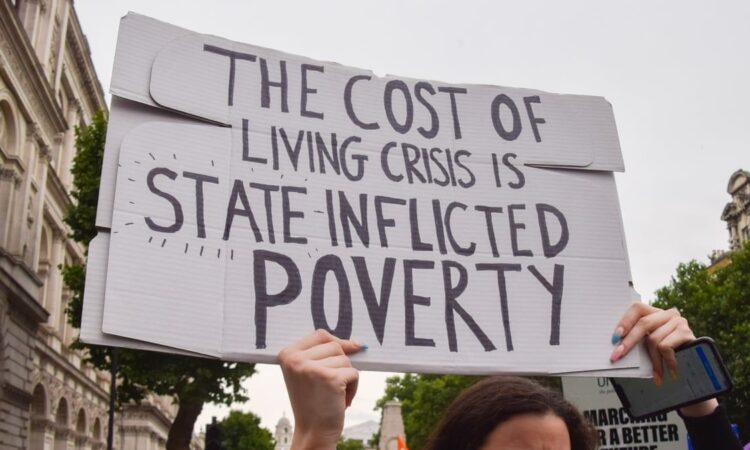
As I wander through the bustling streets of Manchester, the contrast between the city’s rich industrial history and the present struggles of its residents couldn’t be more stark. Here, in one of the UK’s largest cities, the proliferation of ‘banks’ – not of the financial kind, but food banks, pet food banks, and even ‘multi-banks’ – paints a grim picture of a society grappling with an escalating poverty crisis. This phenomenon isn’t confined to Manchester alone; it’s a nationwide issue that questions the very fabric of the social welfare state envisioned by post-war reformers.
The Unseen Epidemic: Hunger and Poverty in the UK
In an era where the UK is considered one of the world’s leading economies, the rapid expansion of the Trussell Trust and the emergence of Blue Cross pet food banks serve as harrowing reminders of the deep-seated issues of poverty and hunger plaguing the nation. The Trussell Trust, established in 1997, has seen a meteoric rise in the demand for its services, indicative of a society where the safety net has glaring holes. The recent introduction of pet food banks by Blue Cross, in response to an alarming increase in emaciated pets, further amplifies the distressing reality of families struggling to meet even the most basic needs.
The fragmentation of poverty into categories such as ‘child poverty’ and ‘fuel poverty’ has only served to obscure the broader, more pervasive problem. This semantic dissection, while aiming to address specific facets, often dilutes the understanding of poverty as a comprehensive, systemic failure. The introduction of the ‘multi-bank’ concept by Gordon Brown was a nod towards a more holistic approach to the issue, yet it remains a stopgap measure in the absence of substantial systemic reforms.
Charity as a Band-Aid on Systemic Wounds
The reliance on charity and the goodwill of the public to address these issues is a testament to the resilience and compassion inherent within communities across the UK. However, it also starkly highlights the inadequacies of current government policies in tackling the root causes of poverty and hunger. The narrative pushed by the Conservatives, framing charity as a viable alternative to state intervention, belies a deeper, more concerning trend of abdicating governmental responsibility towards its citizens.
Amidst this backdrop, the Department for Work and Pensions’ (DWP) recent policy changes, which introduce delays and additional hurdles for those seeking aid from food banks, come across as not just ill-timed but fundamentally out of touch with the realities on the ground. These changes, purportedly in the name of GDPR compliance, have been met with criticism from various charities and organizations for exacerbating the stigma and shame associated with food bank use, further alienating the most vulnerable sections of society.
Looking Beyond: The Need for Systemic Change
The rising phenomenon of various ‘banks’ as a response to increasing poverty levels in the UK raises fundamental questions about the direction in which society is headed. While these initiatives are crucial in providing immediate relief to those in need, they also underscore a disturbing reliance on piecemeal solutions to systemic problems. The vision of a welfare state capable of addressing the ‘five giant evils’ identified by Beveridge seems increasingly out of reach, replaced by a patchwork of charitable efforts struggling to fill the gaps left by governmental inaction.
The narrative around poverty and hunger in the UK needs a drastic shift, from treating symptoms to addressing the root causes. This entails a comprehensive reassessment of social policies, with a focus on creating a more equitable and inclusive society. The resilience and community spirit seen in the proliferation of ‘banks’ across the country should not be seen as a substitute for systemic reform but as a clarion call for urgent and meaningful action from those in power.





